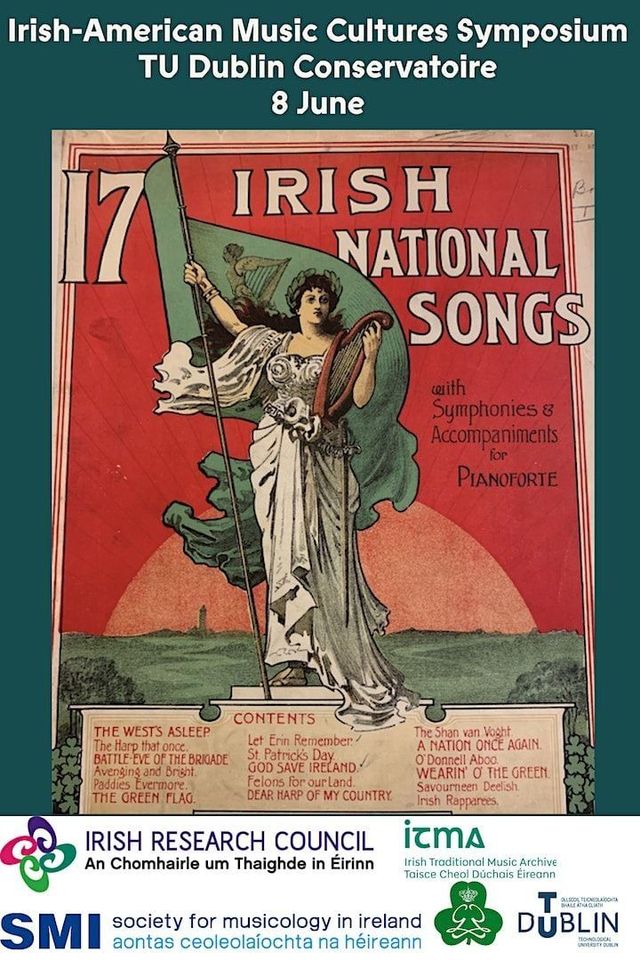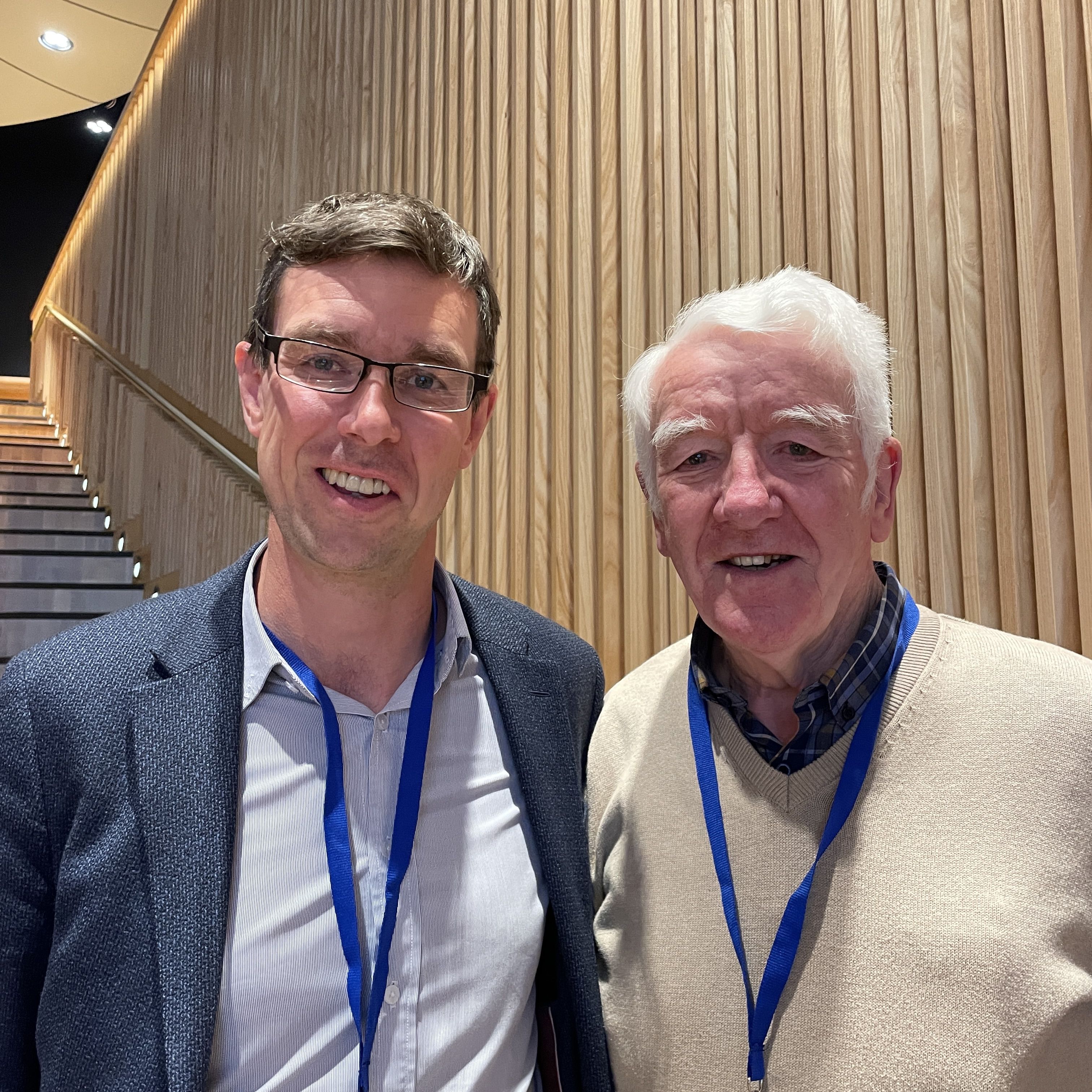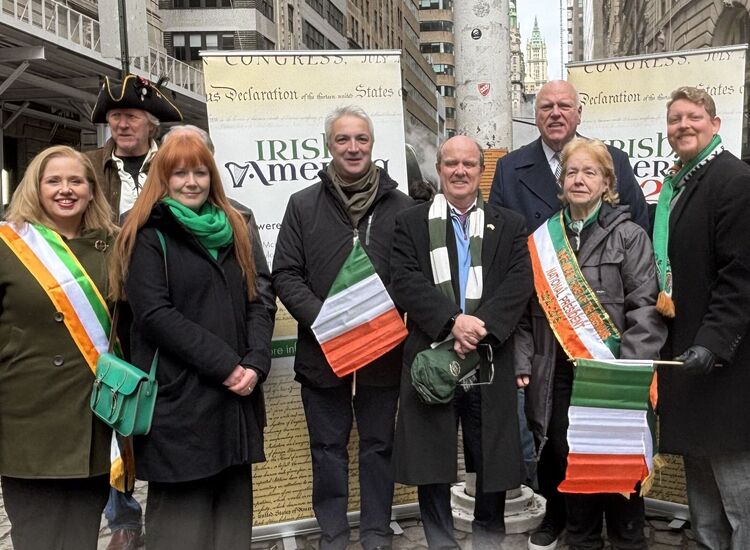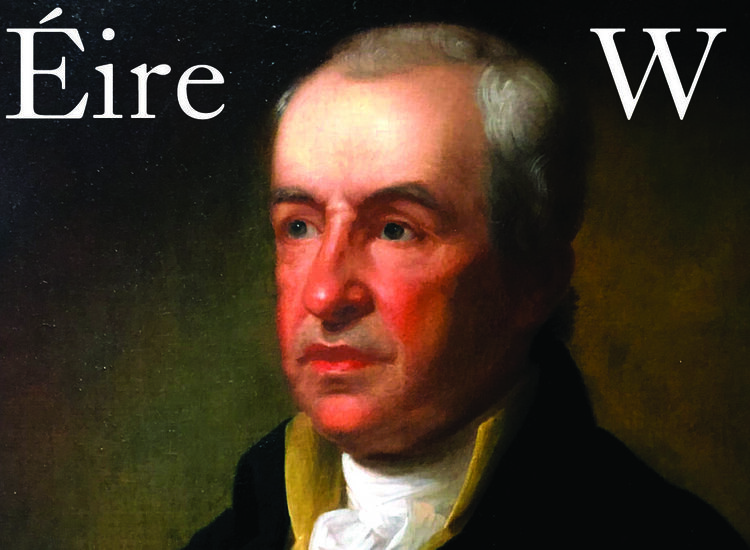Folks, leading off this week to report that piano accordion player extraordinaire Jimmy Keane was Enda Scahill’s guest on this month’s installment of his “Inside the Banjoverse” podcast. Keane is a gregarious and very engaging person who is definitely one of the finest Irish traditional musicians today, full stop. It’s a great episode, on which you’ll hear a bit about his work with Mick Moloney, his recent tour with the Irish Rovers, and the great news that he is remastering bohola’s albums and the should be out later on this year. Bohola, whose core players are Keane and Pat Broaders, is truly one of the great groups in Irish music and their albums have some classic, really driving tracks. Check out this and other of Scahill’s podcasts by visiting the podcast here.
In other news: If you missed seeing the column last week, it was absent because I was in Dublin at the “Irish-American Music Cultures Symposium” hosted by Technological University Dublin’s Conservatoire. Organized by Helen Lawlor, who, in addition to being an important harp player and researcher, is a lecturer at TUDublin and the executive editor of the Journal of the Society for Musicology in Ireland, the conference was a brilliant event that brought a lot of people together for a fascinating and very accessible look at music in Irish-America.
The conference itself was “inspired by the Princess Grace Irish-American Song Sheet collection.” For those of you who mightn’t know (and I imagine there may be a fair few reading this who mightn’t), Princess Grace acquired a major collection of Irish-American sheet music in 1978. Gathered by Michael E O’Donnell, a resident of Philadelphia, between 1932 and 1954, the collection includes some great historical pieces and covers a good bit of artistic ground. It’s a real feather in the cap for the Princess Grace Irish Library in Monaco https://www.pgil.mc/
There were some really fabulous presentations. Folks who contributed included NY-based ethnomusicologist Colin Harte (CUNY), who spoke about Irish traditional music in higher education; Scott Spencer (USC), who talked about Collections, Archives and Digital Humanities; Axel Klein (independent scholar), who talked about the ways Irish music has found its way to the Broadway stage; Maria McHale (TU Dublin Conservatoire), who spoke about Irish opera in America; and Lawlor, Fintan Vallely (independent scholar) and Paula Farquharson (director, Princess Grace Irish Library in Monaco), each of whom spoke about different aspects of the Princess Grace collection.
Liam O’Connor, who is the director of the Irish Traditional Music Archive in Dublin and was involved in the conference’s organization, also gave a really insightful talk on the work ITMA (https://www.itma.ie/) is doing these days. After speaking with him at various points during my stay, I came away thoroughly impressed not only by the work he is doing, but with the direction the archive is moving. They put real value on the music and dance that happens on this side of the Atlantic, which is outstanding.
poster.jpg
In addition to research presentations, the conference also featured some lovely musical performances. Performers included the group Dubh Linn; Fintan Vallely with Tríona & Maighread Ní Dhomhnaill; and Una Hunt & Heather Sammon, who performed music by Thomas Moore and William Vincent Wallace. All the performers were excellent, but I was struck particularly by the interpretations of the music of Wallace Hunt & Sammons gave. Wallace, who was from Waterford and who composed in the mid-nineteenth century in a style not unlike that of Franz Liszt, which was great. (The compositions of Wallace they performed are housed at the Princess Grace Irish Library.)
I was there to co-present the keynote lecture with New York legend Don Meade. Meade (who does important work in traditional music and who this column’s readers really should know) and I were there to speak about Mick Moloney’s research, his academic and artistic background, and the broad impact it has had both in the United States and in Ireland. We spoke for an hour and concluded with some thoughts about the future of Irish music in America. It was a great honor to be involved, particularly in an event in Ireland that did such a good job of exploring Irish America’s role in traditional music’s larger story.
Incidentally: although not part of the conference, I would be remiss were I not to mention the “Skerries Traditional Music Weekend”. Skerries is a lovely little seaside town that had a great vibe and Meade and I went out at Lawlor’s invitation. Sadly, it was a quick visit for me because the crushing grip of jet lag forced an exit early in the day, but the weekend itself felt very robust and was well curated, with a line up of musicians that included individuals including Mick O'Brien, Paudie O'Connor and Aoife Ní Chaoimh, John McEvoy, Jacinta McEvoy, Alan Byrne, Caoimhín Ó Fearghail, Emer Ní Scolaí, Fiona Gryson, and many, many others. The session I attended, which was hosted by the Lawlor family, featured some fabulous musicians from that family of players and was fully enjoyable.
Also, while I was there, I was given a copy of “Ceol an tSraidbhaile Ros Eó: A collection of local tradition Irish music and songs from Rush, Co. Dublin,” which is a great collection showcasing the musical riches of Rush.
The book, which was put together during the pandemic and released last year, includes contributions from a great cross section of local players, including original tunes from Chris Langan, Lenny Martin, Aine & Eithne O’Donnell, Terry Kirk, Carl Jones, Edith Lawlor, and songs from David O’Connor, Aido Lawlor, and others. It is a lovely document detailing the rich of musical life of a small part Ireland. If you’re from the area, or want to get a flavor for how music happens on a local level, it’s definitely worth checking out (and it appears copies are available to purchase on Amazon).
Till next time!









